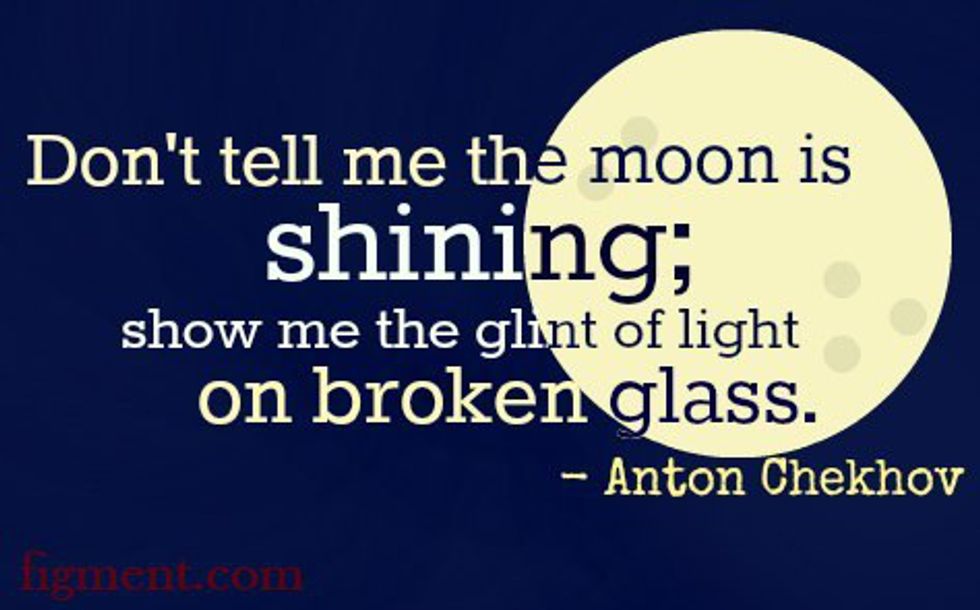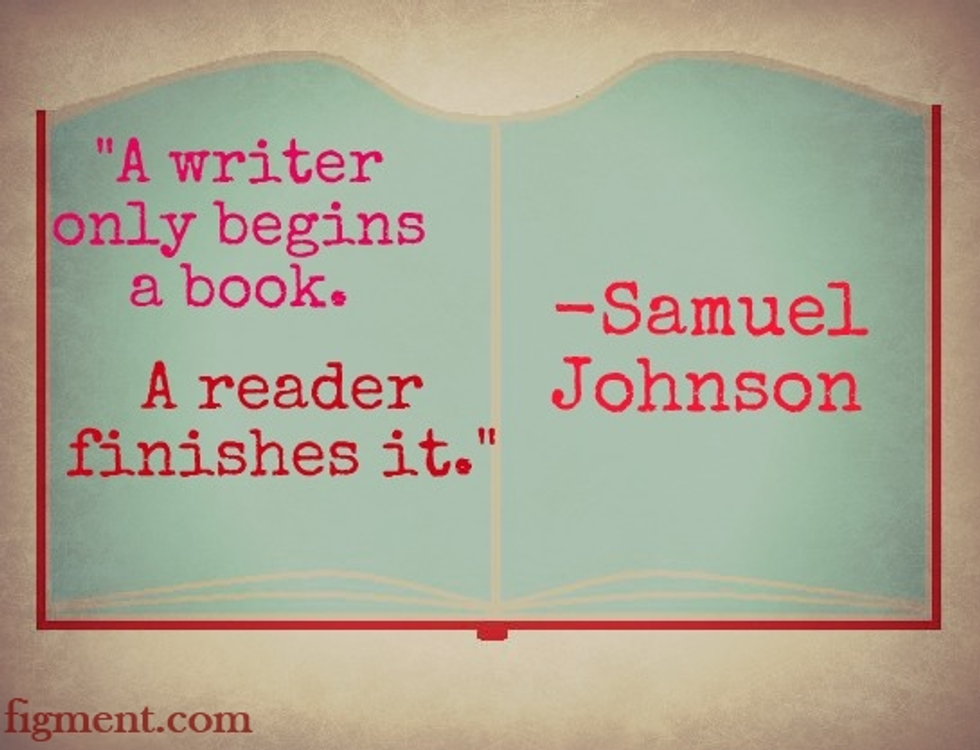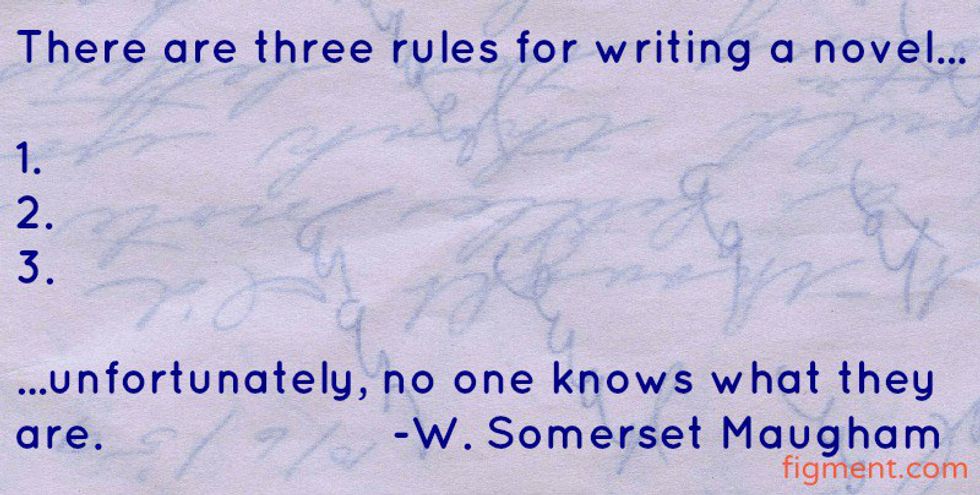As I’m composing this, National Novel Writing Month is only 12 hours away. In honor of this oh-so-commendable writing challenge, I have put together a list of simple writing tips I have picked up the last few years--all illustrated by quotes from famous writers.
1. I guess maybe you shouldn’t be quite so wishy washy. You have to sound firm and perfectly certain. Don’t overuse words like “really”, “maybe”, “perhaps”, “guess”, “simply”, “a little”, and “just”. All these can take the spice out of your writing. Would you rather have a character that “feels a little like he really doesn’t want to just leave” or a character that “feels like he doesn’t want to leave”? You might not feel the last sentence gets your point across (“but he isn’t sure! He doesn’t know if he wants to leave”), but trust me: trying to clarify with words like these will only muddy the waters.
2. Play with "Show and Tell". If you’re a writer, you’ve heard this before. Don’t “tell” when you can “show”. That means instead of writing, “she looked scared”, try, “she glanced back and forth between her friends and the tunnel. Something about her wide eyes asked for help.” But it also means to “tell” instead of “show” certain things. Think about how much simpler it is to write, “the town had a grocery shop on one corner, and a florist on another” instead of having a character trek through both places of business running errands that the reader doesn’t care about. Play around with when to show and when to simplify by telling.
3. Normal people don’t call you by your name, John. This one is a problem only in creative writing, and in particular, dialogue. We don’t normally call people by their names when we’re talking to them. If I look at you and ask a question, I’m assuming you don’t need me to clarify by also calling your name. Dialogue works the same way.
“Hey, John.”
“Hey, Steve.”
“What’d you think about the homework, John?”
“Nothing.”
“Really?”
“Yeah, Steve.”
No one talks like that. It sounds like a bad middle school skit. Try this:
“Hey, John.”
“Hey.”
“What’d you think about the homework?”
“Nothing.”
“Really?”
“Yeah.”
Still super boring. But at least it doesn’t sound like a couple of kids reading from a piece of paper at the front of a classroom.
4. I don’t care how tall you are. Layla was five foot four with shining amber eyes and pitch black hair. She weighed a hundred and eighteen pounds. She had a cute striped skirt and a purple tank top with a green belt and a beanie. Combat boots and ripped leggings covered her feet and legs.
Great. You’d make a good casting director or costumer for a movie. But this is a story, and I don’t care how tall you are. People like me can’t tell when we first meet someone their exact height or weight. People like me don’t notice the color of the girl’s eyes or take special note of her clothes. I take in a quick impression (she’s not especially short or tall, has dark hair, and dresses like she shops at thrift stores. The good kind of thrift stores. The kind hipsters like) and maybe pay more attention later, once I figure out if this new acquaintance will spend more time in my life. Any more detail can make it seem more like an author is playing dress-up with imaginary friends than telling a story—especially if this kind of detail is given for every character or every outfit a character wears.
5. Watch the punctuation! Some writers and editors have rules about how many exclamation marks should be in your writing! No more than one a page! Hardly ever! Not unless absolutely necessary! The main take away is that even if your character is excited, no one speaks every sentence in a state of elevated enthusiasm. After reading a sentence with an exclamation point, if you find yourself thinking a very sarcastic, “No Way! Really?!” you should probably think again.
6. Learn the rules. Before you break them. Ever try reading fanfiction? I don't like it much, mostly because I can’t stand all the rule breaking. An accomplished writer can break rules and make it work. A teenaged fanfiction writer doesn’t even know she’s breaking the rules, or if she does, she doesn’t understand the right time or place to break them. And it shows. Take the heading of this tip. What sense does it make to split the sentence like that? It’s not a dramatic sentence, and doesn’t deserve any extra emphasis. Everything is up to the artist’s interpretation, but it pays to objectively discern when and where to break rules.
7. Read. The only way to get better at writing is by writing, correct? Not really. By reading--not only the same kinds of things that you want to write, but other genres as well--you can get a feel for how professional writers conduct themselves. And, honestly, you'll make fewer grammatical errors because you will be used to seeing the correct structures and spellings.
























